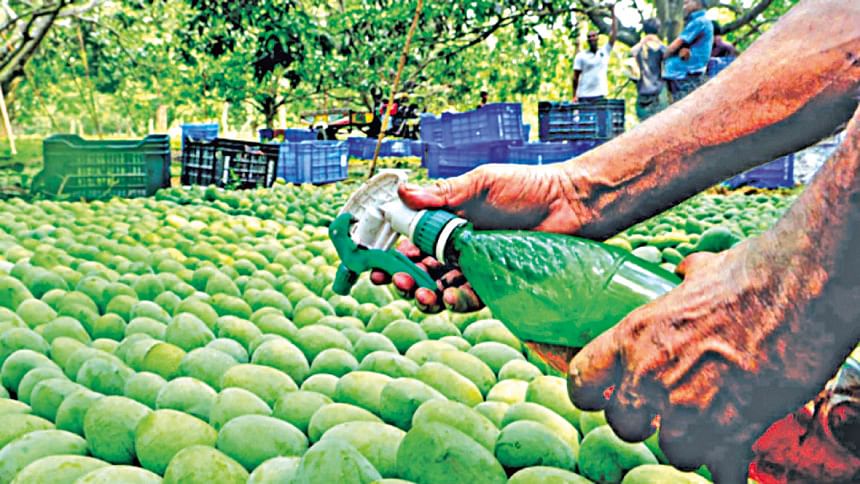Food adulteration and its deadly consequences

Food adulteration slowly damages people's health in ways that are not immediately visible, but have serious long-term effects. However, this despicable crime has become quite normalised in our society. Not all businessmen engage in food adulteration, yet a large portion of food in Bangladesh is adulterated. While there are strict laws against food adulteration in Bangladesh, they are rarely enforced. As a result, business owners continue to adulterate food for profit, and the general public has come to view the consumption of adulterated food as routine.
The first law against food adulteration in Bangladesh was introduced in 1974. Section 25C of the Special Powers Act of 1974 laid out strict penalties for food adulteration, the maximum punishment being life imprisonment or even the death sentence. In all cases, fines could also be imposed.
Despite having penalties as severe as death, food adulteration in Bangladesh has not been curbed, primarily due to the lack of enforcement. Since the law is not enforced, even the threat of the death penalty has failed to instill fear in unscrupulous traders. Additionally, in 2009, the Consumer Rights Protection Act was enacted for the benefit of consumers. In 2013, another law, the Food Safety Act, was introduced to eliminate food adulteration. This Act imposes penalties for food adulteration, producing substandard food, and importing, processing, storing, supplying, or selling adulterated food. Under the new law, the punishments are comparatively less severe than the 1974 Special Powers Act. Instead of repealing the 1974 Act, the introduction of this new law has effectively reduced the severity of the punishment.
According to legal theory, punishment has various purposes and kinds, such as deterrent punishment, retributive punishment, reformative punishment, and preventive punishment. Section 25C of the Special Powers Act of 1974 is designed as a deterrent and preventive punishment. The aim of deterrent punishment is to discourage future crimes by setting an example through the punishment, while preventive punishment seeks to prevent further crimes by incapacitating the criminal. But without proper enforcement, the law's goals are not achieved, making it ineffective—this law is a clear example of that.
We occasionally find in the media the Consumer Protection Authorities and the Bangladesh Food Safety Authority conducting operations. However, in reality, food adulteration in the country is not decreasing; in fact, it is rising. This shows that the lack of enforcement is the root cause here. Merely passing laws without implementing them only leads to disappointment for the nation and its people. Therefore, immediate steps must be taken to enforce these laws so that crime is reduced, and the people of Bangladesh are freed from the scourge of adulterated food.
The writer is LLM candidate at Bangladesh University of Professionals (BUP).

 For all latest news, follow The Daily Star's Google News channel.
For all latest news, follow The Daily Star's Google News channel. 



Comments